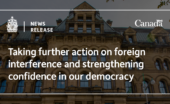Molly Minturn - My family is heartbroken to share that my father died in surgery on Monday, Feb. 10. It…
Wednesday Night Salon #1349 – emerging markets
Written by Diana Thebaud Nicholson // January 9, 2008 // Emerging markets/economies, Herb Bercovitz, Reports, Wednesday Nights // 1 Comment
9 January 2008

The Report
The Primaries
Predictably, the 2008 U.S. elections was a major topic for this Wednesday Night with predictions reflecting the diversity and national origin of the members.
Discontent with the Bush administration and the lack of progress in the war in Iraq led all but three guests to believe that the ultimate election will go to the Democrats, for whom there seems little doubt that the choice will be between Hilary Clinton and Barack Obama, but with some disagreement on the factors favoring each. Although it was mentioned that some (Southern) commentary stated that Black men, presumably favoring Obama, were granted the right to vote fifty years before Black [or any other] women, presumably favoring Clinton, it was pointed out that the poll tax and Jim Crow laws effectively discouraged or prevented Black men from voting, minimizing that factor if indeed, it is valid at all. [It was only in the 60s with the efforts of the Department of Justice under Bobby Kennedy that the Civil Rights movement focused on voter registration and the National Voting Rights Act of 1965 that put an end to discrimination at the polls.] However, although women favoring the Democrats might be expected to support Clinton, it is probable that Obama will attract Black voters who have never before participated in presidential elections. Whatever the outcome, it would be unfortunate if skin colour and/or gender were to trump competence, especially at this crucial point in the history of the United States.
Whether the next President will be Republican or Democrat may very well depend on several issues including how the Olympics are handled, what happens in Iran and how aggressive Russia becomes.
Among those who predict a Republican administration, one cited the innate social conservatism of Americans, another suggested that Americans are not ready to elect a woman, therefore if Hillary Clinton were to be the Democratic nominee, the Republicans would win. Another, correctly claiming to have accurately predicted the outcome, against the odds, of the past two U.S. and last Canadian federal elections, has predicted that the next U.S. President will be Rudolph Giuliani (“holding back strategically from the early/smaller primaries”). A final word of caution underlined the deep-rooted commitment of the American people to the military and their consequent desire to ensure that the troops in Iraq are not abandoned, which might ensure a Republican victory. Whatever the outcome, it is essential that the next president understand the gravity and the forces at work in this, truly a war of eras – the Middle Ages versus Enlightenment.
Actually, a Democrat was elected in the last two elections
The dream team would be Hilary as President and Obama as Vice President
Islam
A Martian viewing events on the planet Earth might conclude that the Western World is either the aggressor in the Middle East, seeking to loot the valuable riches buried in the Mesopotamian basin, or the victim of a group of proselytising religious fanatics, eager to sacrifice their young in their effort to bring the true religion to the entire planet. Events viewed from a distance certainly do not take into account the reality of any situation and an observation by one Wednesday Nighter that may or may not reflect reality provides the following analysis of the current situation.
As a religion, Islam is seven hundred years younger than Christianity and we might best view some of its actions in comparison to those of the militant Christians at an equivalent stage of development. [For several highly entertaining minutes, the discussion veered to the origins of the chivalrous, or hospitaller orders that combined the operation of hospices and medical services to pilgrims with the activities of an armed body of men who protected the pilgrims along with lands and wealth of the monastic orders, and/or religious shrines, including Jerusalem..] However, there is little similarity between The Crusaders and Al Qaeda, other than the violence done in the name of religion to the innocent civilian population. Ultimately, it is argued, Al Qaeda will be unable to consolidate the Muslim world and dominate the West because, unlike Christianity at the time of the Crusades, it is divided along tribal rather than united along geographic lines. [Note: this observation is strongly supported by the article “Between fitna, fawda and the deep blue sea” in The Economist of January 10]
India
India possibly be the planet’s most rapidly developing country in this century. One example of how India is changing is a project in which Indian property developers have purchased a huge tract of land (between Mumbai and Panaji) and will build and fund a private university, hospital and research facility, based on the U.S. model, partnered with American universities, with the curriculum set and taught by U.S. professors. The Indian education authorities are supportive of the model because it responds to some of the current lacunae in higher education. The target market is Indian families who would otherwise send their children abroad for their higher education. The developers are prepared to invest enormous amounts of money into the project in the realistic expectation that the surrounding land that they had purchased at low cost will become valuable as a new high-income population centre will grow up around it.
The U.K. is currently suffering from an exodus of Indian physicians returning to India to take advantage of the superior facilities in private hospitals and research funding there. Canada is experiencing the same situation among scientists, especially those who were born in India. In the past, it was normal that students and young scientists would remain in this country, becoming a national asset. However, today, once they reach a certain level, Canada cannot compete with India where research facilities will be built for them with generous funding and assistance. It appears that the attraction is also based on the sentiment that India is a nation on the rise and they want to be part of the adventure.
Homosexual donors of organs
Organ transplants are vital to many patients whose continuing life is totally dependent on receiving a compatible heart, kidney or other organ donated by a recently deceased human, so it is disheartening to learn that Canadian authorities have ruled that homosexuals are not permitted to donate organs. The principal problem is that active homosexuals tend to have considerably higher rates of serious disease than the general population. HIV/AIDS still tops the list, but the Centres for Disease Control have noted recently a sharp rise in the rates of syphilis and numerous sexually transmitted diseases among homosexual men. Further, the process of HIV testing is relatively long while a donated organ remains viable following harvesting for only a short period (24-40 hours). Recent development of new rapid testing methods may facilitate the availability and acceptability of organs donated by homosexuals.
Healthcare delivery problems
While there is agreement among Wednesday Nighters on the availability of timely medical care and fear for the future, there is a difference of opinion on both the source and resolution of the problem. One hypothesis is that for political reasons, the Québec government tends to favour the unions at great cost to the system and to patient care; another parallel argument suggests that all provinces have erred in favoring supply-side economies to control costs, rather than efficiencies; while others blame the emphasis on prolonging lives in an aging population, and current top-down management that does not view the intelligence of each as a valuable resource. There are inherent problems in placing complete responsibility for Health and Education in political hands; there are equal but different problems with solely private systems. Finally, and perhaps most important there is a failure of management to engage employees in what they are doing – an employee understands, far better than senior management, the nature and requirements of his/her job and if engaged, will innovate and improve efficiency. Efficiency tends to increase in an inverse relationship with the number of layers of management. The most striking example of this maxim is the relative success through good and difficult times, of the Roman Catholic Church, a world-wide organization (admittedly one with top-down management) that has successfully survived through twenty centuries of times good and bad with just three layers of management between the first level management and the C.E.O.
Argentina offers a current example of what happens when neither the government, nor the private sector manage the economy. In the wake of hyperinflation, corruption and collapse of the economy, owners of factories in Buenos Aires and Mendoza simply gathered up their assets and fled the country, abandoning the factories and machinery. After a period when the police prevented the workers from entering the premises, the government decided to let the workers go back to work and theoretically “own” a piece of the entity. In fact, nobody owns anything. There’s no capital investment and no renewal of assets, with no long-term future. It is a temporary solution, but as the economy recovers, there is hope for the future.
[Some will remember the film “The Take” that documented some of the earliest reclamations of abandoned factories by the workers – for an interesting view of how this might apply to Canada, see “The Take: Factory Occupations“]
Investment funds and emerging markets
There are essentially two types of investment funds, namely mutual funds in which units are traded and sold at net asset value; and closed-end funds which issue the equivalent of shares that are listed on a public bourse and trade on market value. City of London Emerging World Fund buys closed-end country funds in emerging markets at discount and has been extremely successful in this market, with a 46% return on the Dublin listed fund in 2007. GFM Emerging Markets Fund (an open fund that invests in two closed-end funds that have been purchased around the world at large discounts of funds of emerging markets) is registered in Canada and has been doing slightly better than the Dublin one.
City of London follows some 25 countries and over 500 companies around the world, trading 22 hours a day from offices in London, Dublin, the U.S. and Singapore. The country selection process is meticulous including all available figures (GDP, debt, reserves, etc), the legislative and regulatory environment and the track record of managers of such funds.
Emerging markets are not created equal and can be divided into several categories.
Countries are divided into 3 groups. Pre-emerging markets such as Tunisia and Cuba are to be avoided, as there are no legal structure to protect investors. Emerging countries may be sub-divided into fast track and slow. Fast track countries are those such as China that have good growth, substantial reserves, but lack refined legal or regulatory systems to adequately protect shareholders. Slow track countries are making progress towards a system with oversight, legislation, etc. Rapidly growing pre-industrial markets such as Brazil and India offer good growth and great opportunities.
Every closed end fund is different, therefore it is essential to analyse the fine print of each. Of some 700 emerging markets closed-end country funds, the universe from which CoL selects its portfolios is among some three hundred funds sharing seven or eight managers.
Other links to emerging markets websites:
Emerging Markets
Financial Times
Forbes
The Prologue
Welcome back to all who have enjoyed protracted holidays in exotic, or not-so-exotic habitats! We have missed you and once again extend warmest greetings and good wishes for the coming year, as we look forward to many more enlightening evenings of quiet discussion and/or passionate debate.
There’s little doubt that the Iowa and New Hampshire Primary results will be at the top of this week’s topics. We have been particularly impressed with the candidates’ debates and, despite Bill Richardson’s quip that he had been in hostage negotiations that were more civil, we found the general tone thoughtful and thought-provoking, giving the audience a good picture of the strengths – and flaws – of each candidate. Speaking of which, in our view, the less glamorous, highly experienced, and much-neglected fourth candidate, Governor Richardson, deserves more attention.
Sadly, Afghanistan, Iraq, Pakistan and Kenya are still in the news and promise to be there for some time to come.
Forecasts and prognostications of the economy are in vogue and Germain Bourgeois should be with us to share his good fortune from wise investing in emerging markets.He has always generously shared his opinions and perhaps more of us will not only listen, but act on his counsel. Bearing out his views: Bloomberg’s piece, “India Investment Booms With Third Year of 9% GDP Growth in ’08“. But China‘s story may not be so good. UPI reports that “Until recently, the West has turned a blind eye to the falsified statistics China has routinely produced to impress the world. Only recently have independent reports begun to appear in the mainstream Western press that China is not developing as fast as previously portrayed. Not only that, there are wide gaps between published economic figures and the truth. It is beginning to emerge that China has been hoodwinking the West.
A stark new analysis by Albert Keidel, an economist at the Carnegie Endowment for International Peace, has laid China’s overconfidence bare.”
The Guardian’s List of 50 People Who Could Save The Planet is sure to generate some discussion; names range from Leonardo DiCaprio to Tewolde Egziabher of Ethiopia and (surprise!) Bjørn Lomborg [“He doesn’t dispute the science of climate change, but questions the priority it is given. He may look increasingly out of step, but Lomborg is one of the few academics prepared to challenge the consensus with credible data.”]
Mercifully, with federal and provincial politicians in recess, things have been quiet on the political front at home. As oil prices rise, there’s no-one to grumble to. We have survived the mega-snowfalls and the City has almost caught up on clearing the streets (for now), so as we revel in the January Thaw, we have given over to celebrations of the 10th anniversary of the Great Ice Storm. The Gazette is publishing an excellent retrospective and Aislin’s cartoon above says it all.
Forecasts of practically every aspect of 2008 are plentiful and not cheerful (see CBC story Recession fears grow as U.S. job market stalls). One which many of you may not have seen is IATA’s financial forecast for the key sector of aviation We invite you to share your favorite ones with us.
Finally, if you read nothing else, please ponder Jeremy Kinsman’s Memo to the PM: The world in 2008, a thoughtful and informed analysis of foreign policy issues and opportunities in 2008, which, regrettably, we are convinced will not be read by those who should be reading it.




One Comment on "Wednesday Night Salon #1349 – emerging markets"
Investors pour cash into emerging markets
By Deborah Brewster in New York
Investors are pouring money into the opposite ends of the risk spectrum, with cash and high-risk emerging markets attracting record inflows while the middle ground – traditional bond and equity funds – attract little or no money.
In an unprecedented shift of money from developed world stock markets to emerging markets, US investors last year put a record $40bn into emerging markets funds – almost double the amount of last year – while they pulled net $57bn from US, Europe and Japan funds. Inflows to global equities funds, which include exposure to emerging markets, were $40bn.